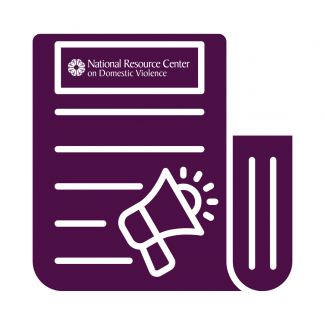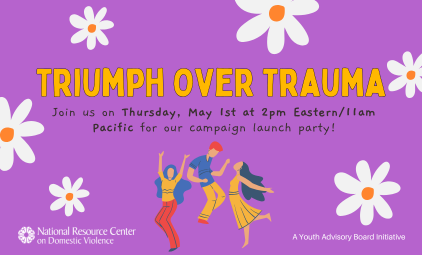The National Resource Center on Domestic Violence (NRCDV) is disappointed and concerned by the U.S. Supreme Court’s ruling today in Grants Pass v. Johnson. The Court’s decision to allow criminalization of homelessness will penalize victims of domestic violence for making the often life-saving decision to flee from a violent partner.
Intimate partner violence is a leading cause of homelessness for women. Victims are often faced with the difficult decision of staying with an abusive partner or fleeing to save their and their children’s lives. After leaving, victims are then met with the realities of scarce (and often full) emergency shelters and a dire lack of affordable housing.
According to the National Network to End Domestic Violence’s annual DV Counts report, the majority (54%) of unmet requests for services in 2023 were for emergency shelter, transitional housing, and other housing needs. Victims are often already criminalized for actions including self-defense, “failure to protect,” and migration, and now face arrest, imprisonment, fines, and the loss of their children simply because they have nowhere safe to live.
Rates of homelessness are rising at unprecedented rates and the National Low Income Housing Coalition continues to document a severe shortage of available affordable housing. With this ruling, survivors and others experiencing homelessness and housing instability will remain trapped in cycles of incarceration, poverty, and violence. This is all despite the overwhelming evidence that policing is an expensive and ineffective response to the housing crisis.
To allow jailing and fining people experiencing homelessness as a solution to the housing crisis dismisses our collective responsibility to identify and address the social and systemic root causes which allow homelessness to thrive – including poverty, violence, and oppression.
We join our partner organizations in the gender-based violence and homelessness movements in their call to state and local governments: Do not criminalize survival. Uphold the rights of people who are unhoused, including survivors of domestic violence. Rather than arresting those in need, our focus needs to be on addressing the housing crisis and systemic barriers that lead to homelessness.
Survivors of domestic violence and their children deserve freedom and safety.
For additional information, please contact Pamela Jacobs, CEO of the National Resource Center on Domestic Violence, at pjacobs@nrcdv.org.















